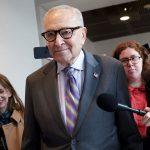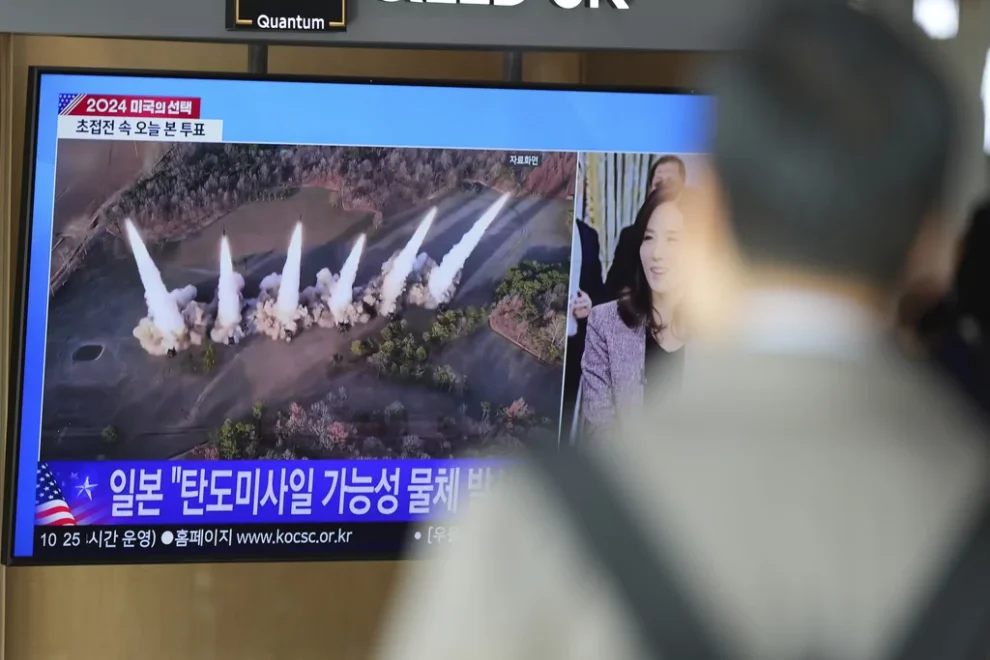North Korea launched a series of ballistic missiles into the Sea of Japan ahead of the U.S. presidential election — an act that Russia defended as a “legitimate” defensive procedure.
At least seven missiles were fired by the Korean People’s Army on Tuesday, flying up to 250 miles and landing in the water between North Korea and Japan.
The missile launch was executed just before the presidential election on Tuesday and just after a trilateral defense exercise conducted by the United States, South Korea, and Japan on Sunday.
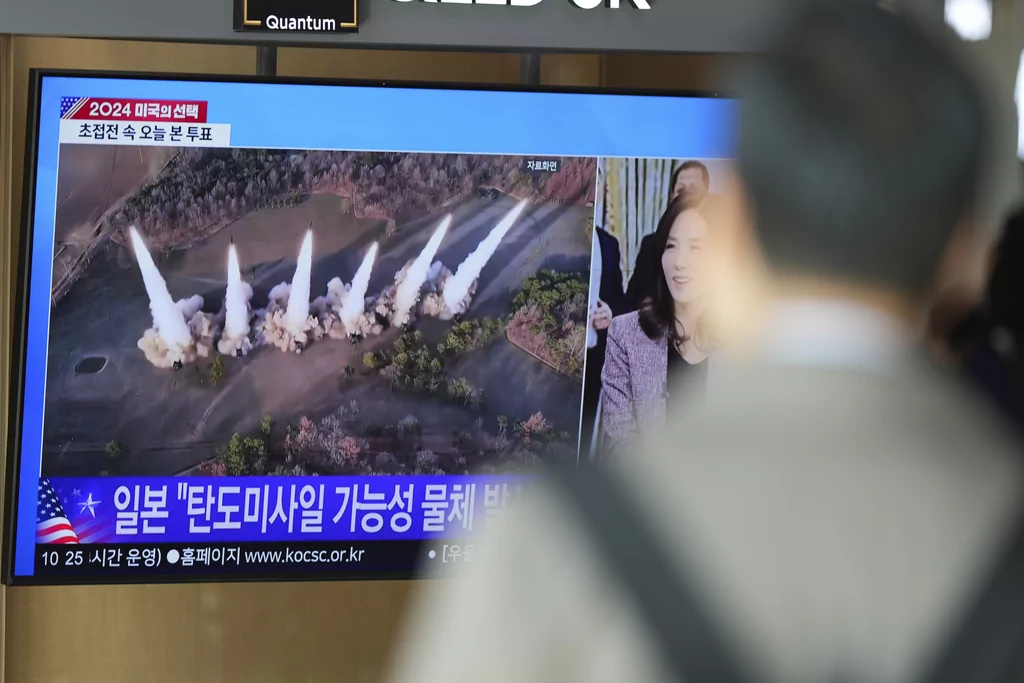
Troy Stangarone, the director of the Hyundai Motor-Korea Foundation Center for Korean History and Public Policy, told the Washington Examiner the ballistic launch was most likely a response to the trilateral exercises — a routine show of force from the U.S. and its allies that typically aggravates Supreme Leader Kim Jong Un’s regime.
“One of the things [North Korean leaders] do when they want to demonstrate displeasure to the United States, South Korea, or others, is to shoot off a series of short-range missiles,” Stangarone said.
North Korea test-launched a new model of intercontinental ballistic missile last week that was capable of traveling farther and longer than any previous model used by the regime.
The new ICBM is “a signal to whoever wins the election that North Korea is a country they are going to have to deal with,” Stangarone told the Washington Examiner. “And that if you expect to come into any type of [negotiations] with the North Koreans, then you should have different expectations than in the past.”
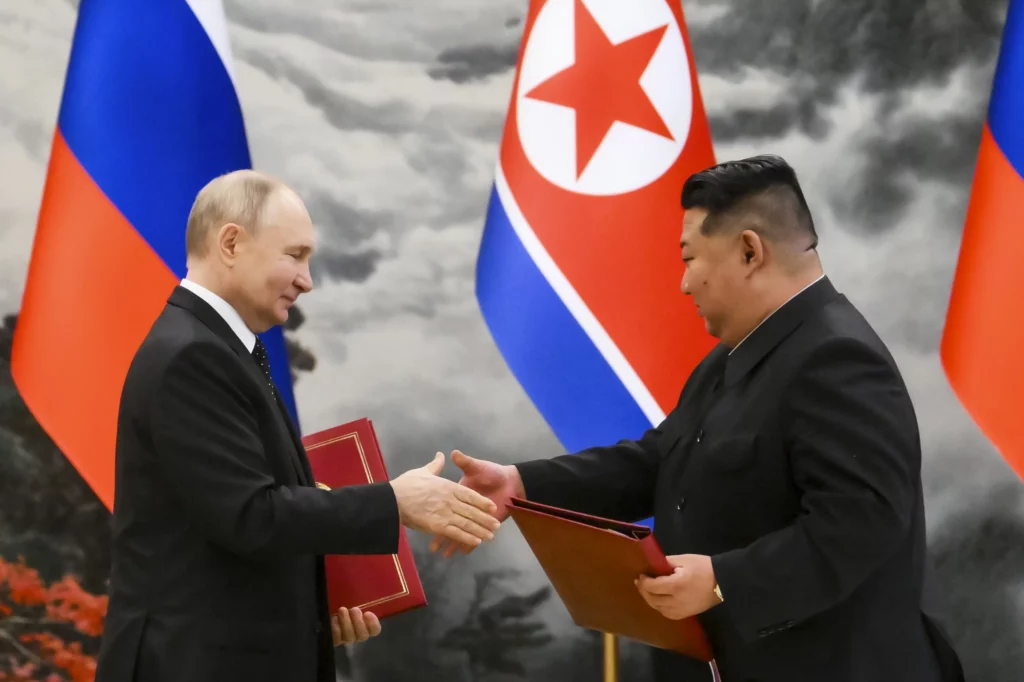
He continued: “We’ve seen this at the United Nations, where their ambassador said a couple months ago that regardless of who won that this was going to be a different North Korea than the United States has engaged with before.”
The Hwasong-19 intercontinental ballistic missile was touted by the North Korean government as the strongest missile in the world — an overzealous and inaccurate estimate, according to international experts.
The apparent use of preloaded solid fuel did “show how North Korean technology is advancing” with the aid of Russia and China, Stangarone told the Washington Examiner, but not more than U.S. intelligence has expected.
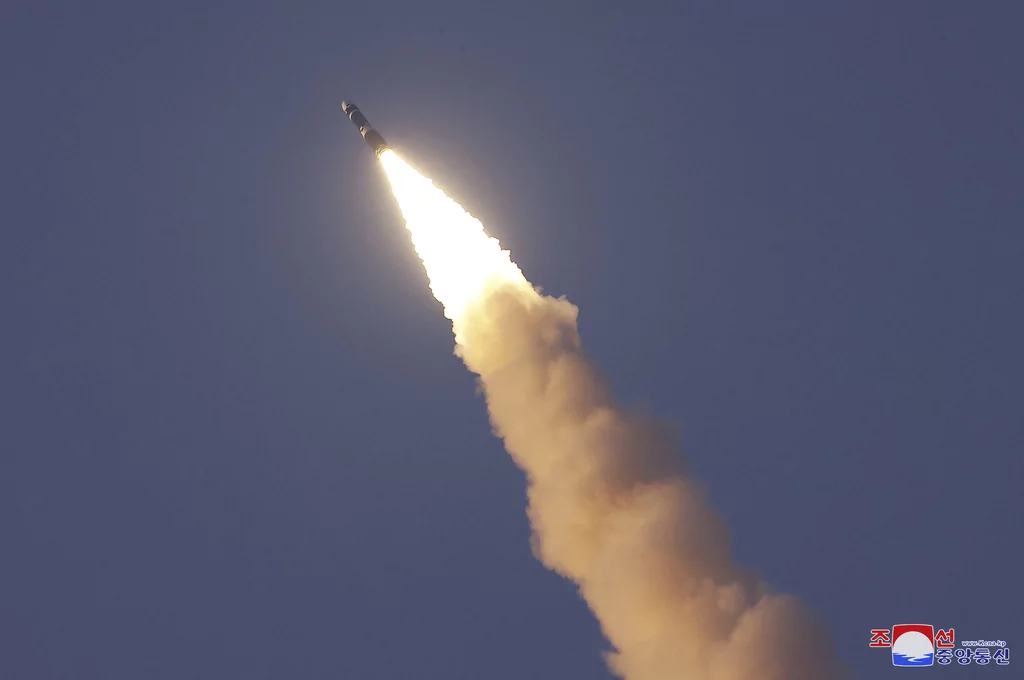
CLICK HERE TO READ MORE FROM THE WASHINGTON EXAMINER
Russia, which is North Korea’s most prominent ally, alluded to the pre-election launch being a direct message to the U.S. and South Korea in a statement to its domestic media.
Deputy Foreign Minister Andrey Rudenko told state media outlet TASS that the missile launch was “a response from our Korean friends to what is happening around the Korean Peninsula and to that provocative activity the United States has been developing jointly with its allies.”
Rudenko called it “a legitimate measure” to “ensure [North Korea’s] own defense capability,” according to TASS.





